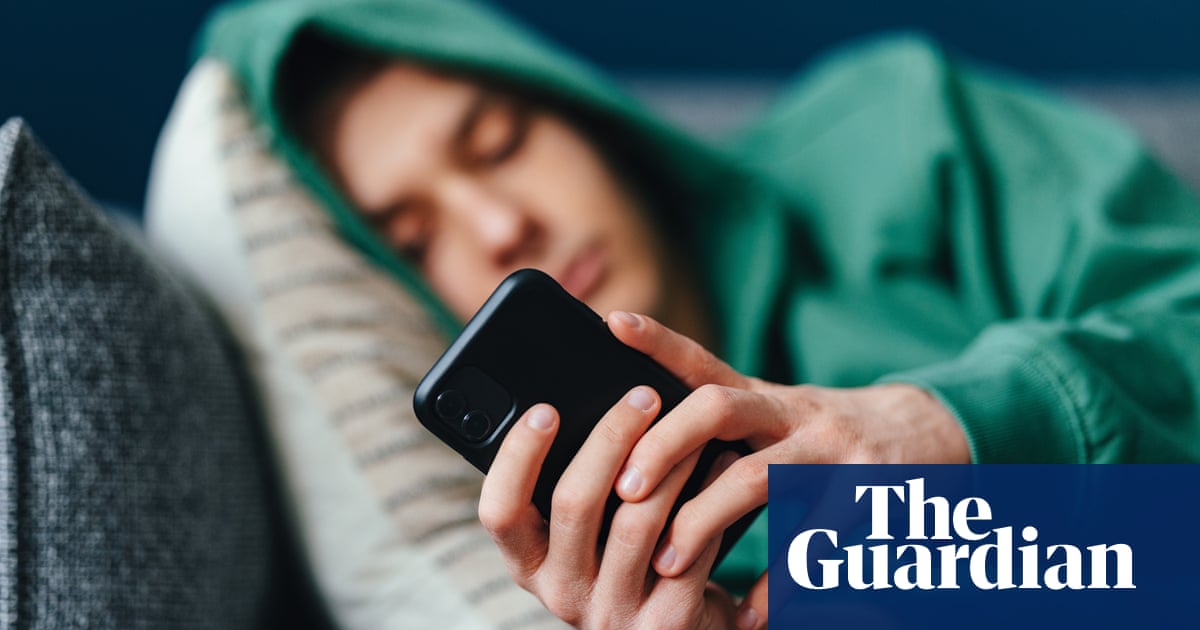
Teenagers who fall prey to “problematic smartphone use” are more likely to suffer from insomnia, anxiety and depression, a new study suggests.
About one in five teenagers aged 16-18 displayed problematic behaviour with their phones, with many saying they wanted help cutting down, experts from King’s College London found.
The researchers stopped short of saying some are addicted to their phones – citing need for a clear demonstration of potential harm, persistence and a clinical need for intervention.
But they said there are some similarities between problematic smartphone use (PSU) and substance or behavioural addictions, such as a loss of control over use, neglect of more meaningful activities and distress if access is restricted.
“Smartphones are fun and useful, and we’re developing them all the time,” said Dr Nicola Kalk, a co-author of the research at King’s College London. “As an addiction psychiatrist, I would say that some human beings get into trouble with things that are fun, and we need to help them.”
She added: “While there are limitations to this data, it does contribute to an accumulation of evidence that suggests that a proportion of teenagers use their smartphone in a way that is starting to look more and more like an addiction.”
Almost two-thirds of the participants said they had tried to cut down on their smartphone use, with one in eight wanting help to do so – a request more common among those with PSU.
Writing in the journal Acta Paediatrica, Kalk and colleagues report how they assessed 657 adolescents aged 16–18 years across five schools for PSU, using scores based on 10 questions, such as whether participants could stand being separated from their device.
Overall 18.7% were deemed to have PSU, with the percentage ranging from 13.0% to 43.1% across the five schools.
Teens with PSU spent longer on Instagram and TikTok than those without. They also had twice the odds of having symptoms of moderate anxiety, almost three times the odds of having moderate depression symptoms, and a greater likelihood of insomnia. However the team caution it is unclear to what extent PSU is a cause or effect of such difficulties.
Analysis of the teens’ smartphone screen time only showed a direct correlation with insomnia.
In the team’s other study, published in BMJ Mental Health, a smaller group of teenagers – 62 pupils aged 13-16 from two London schools – were scored for PSU at the start and end of a four-week period.
The researchers found increases in PSU scores over the four weeks were associated with an increase in symptoms of anxiety, depression and insomnia – and vice versa.
The academics said parents of teens struggling with their smartphone use should join in with reduction strategies, such as not allowing phone use during meal times or after a certain time at night.
Prof Chris Ferguson from Stetson University, Florida, who was not involved in the work, said a key finding is that time spent on smartphones was not associated with negative mental health outcomes.
However Ferguson took issue with the PSU term, noting there is no official diagnosis or agreed criteria for “problematic” behaviour. He said some of those affected might be fine but just really like their phones or social media, and that PSU could be a “red flag” for other underlying issues.
“There’s little evidence here, or elsewhere, that restricting technology, putting age limits on social media, or banning smartphones in schools is helpful in improving teen wellness or academic performance,” he said.
Source: theguardian.com


















